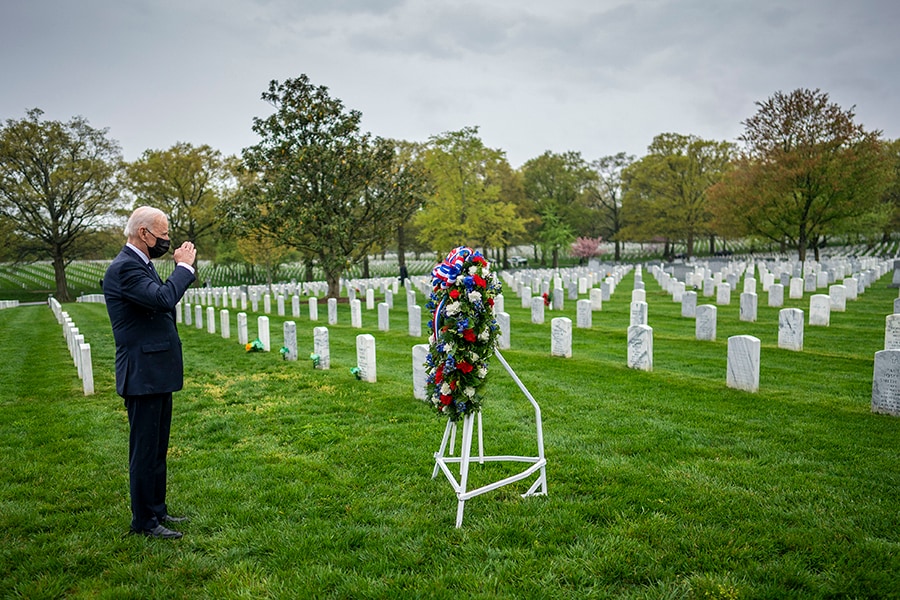
Biden says US troops will be out of Afghanistan by Sept. 11
The roughly 2,500 American troops on the ground there would be gradually withdrawn starting May 1, with the process complete by Sept. 11, bringing an end to a largely failed chapter in American foreign policy
 President Joe Biden salutes during a visit to Section 60 of Arlington National Cemetery in Arlington, Va., on Wednesday, April 14, 2021, where many U.S. service members who lost their lives in Iraq or Afghanistan are interred. President Biden formally ended the 20-year, largely unsuccessful American effort to remake Afghanistan, declaring from the White House on Wednesday afternoon that he would withdraw the remaining few thousand United States troops in the country by Sept. 11 and refocus American attention elsewhere; Image: Doug Mills/The New York Times
President Joe Biden salutes during a visit to Section 60 of Arlington National Cemetery in Arlington, Va., on Wednesday, April 14, 2021, where many U.S. service members who lost their lives in Iraq or Afghanistan are interred. President Biden formally ended the 20-year, largely unsuccessful American effort to remake Afghanistan, declaring from the White House on Wednesday afternoon that he would withdraw the remaining few thousand United States troops in the country by Sept. 11 and refocus American attention elsewhere; Image: Doug Mills/The New York Times
WASHINGTON — President Joe Biden declared on Wednesday that “it is time to end the forever war” in Afghanistan, saying that the United States had long ago accomplished its main mission of denying terrorists a haven in the country and that leaving American forces there was no longer worth the cost in blood and money.
Speaking from the same spot in the White House where President George W. Bush ordered the start of the war after the Sept. 11 attacks nearly two decades ago, Biden made a case that there was no longer any justification — if there ever was — to believe that the U.S. military presence could turn Afghanistan into a stable democracy.
The roughly 2,500 American troops on the ground there, he said, would be gradually withdrawn starting May 1, with the process complete by Sept. 11, a timetable intended to signal his determination to end a vexing and largely failed chapter in American foreign policy.
Military officials suggested the exit could be even more rapid, leaving only a token guard force for the American Embassy. NATO forces, which today have a far larger presence than the United States, would also depart, European officials said.
“War in Afghanistan was never meant to be a multigenerational undertaking,” Biden asserted, noting that service members now serving in Afghanistan had parents who served in the same war.
©2019 New York Times News Service




